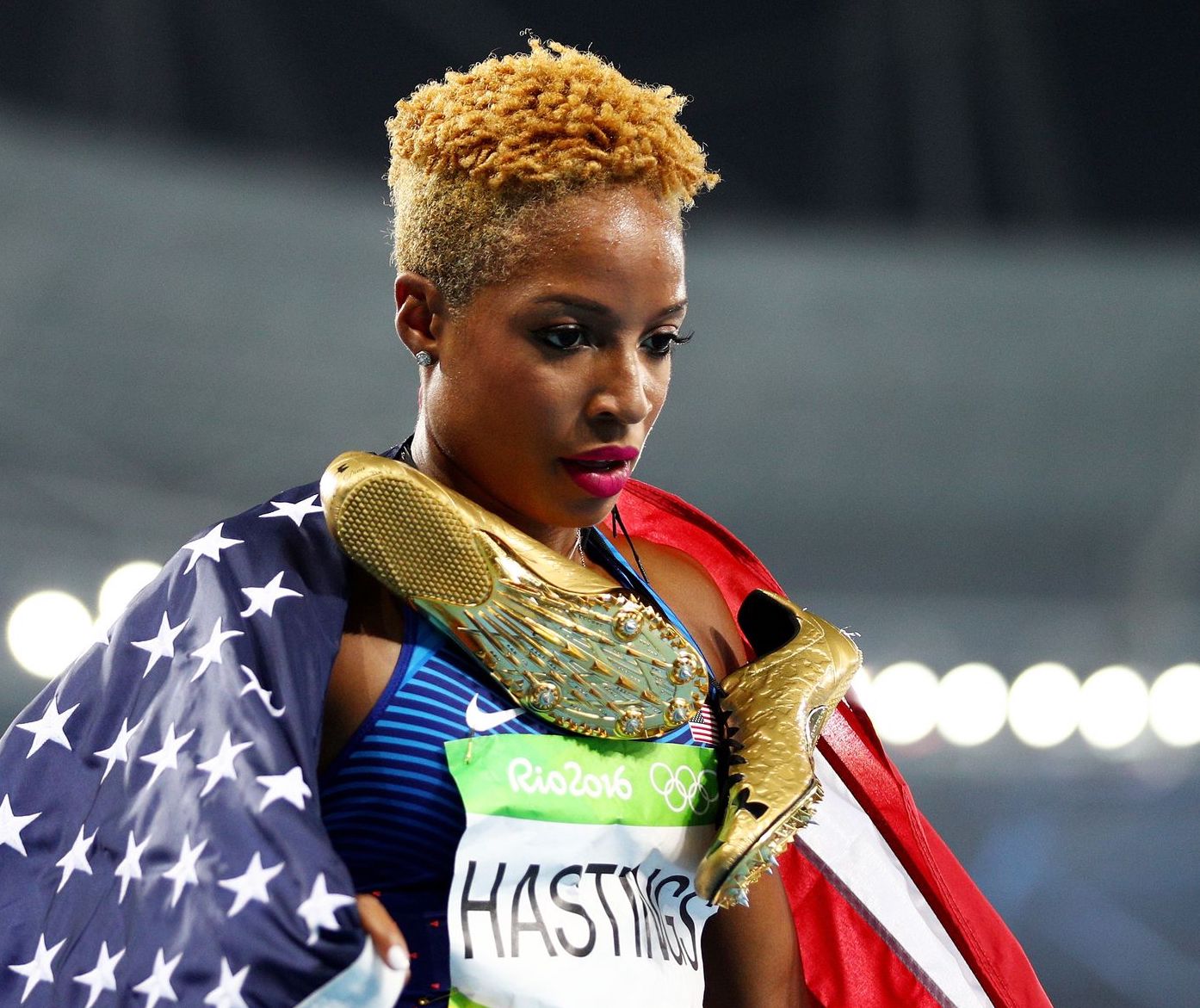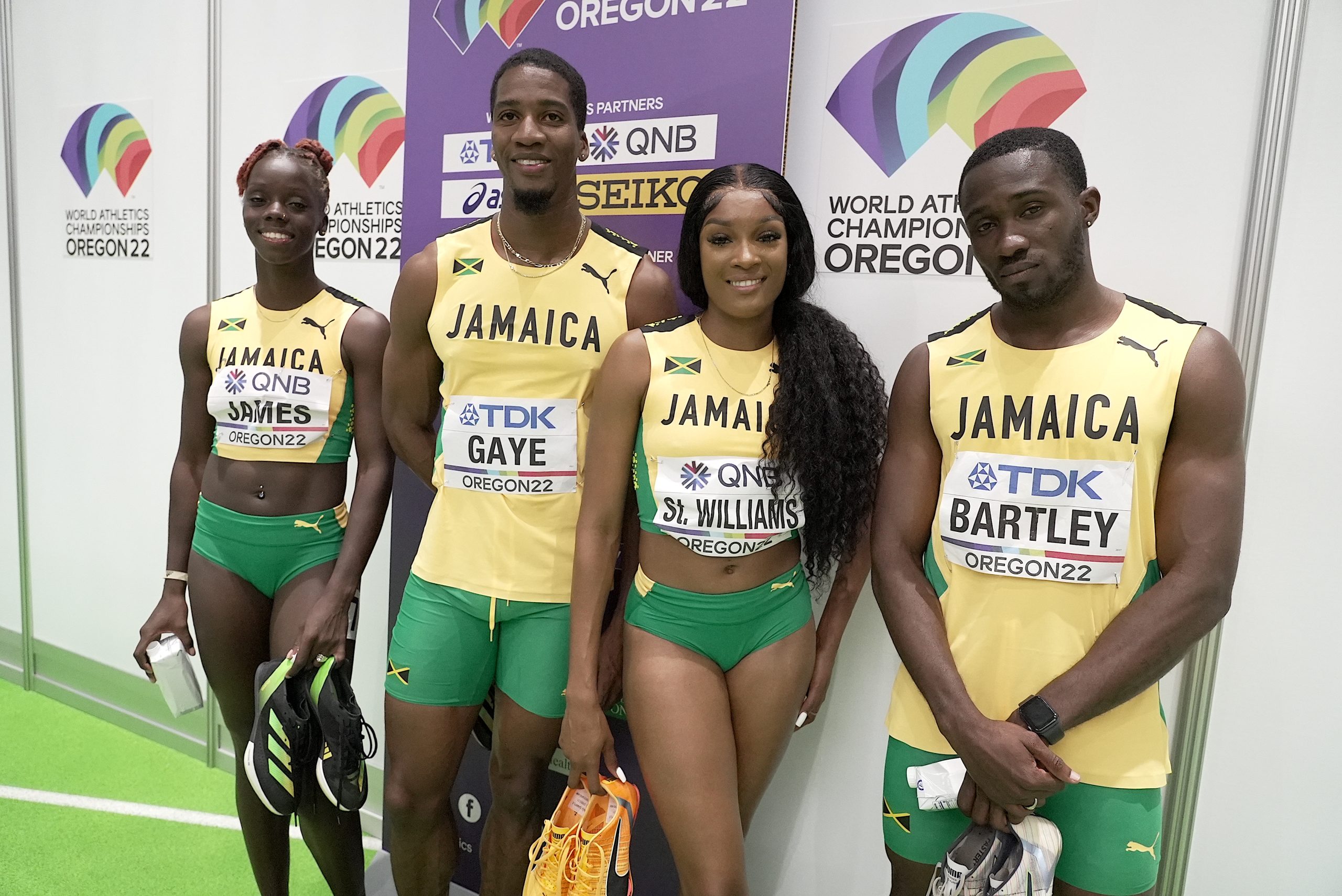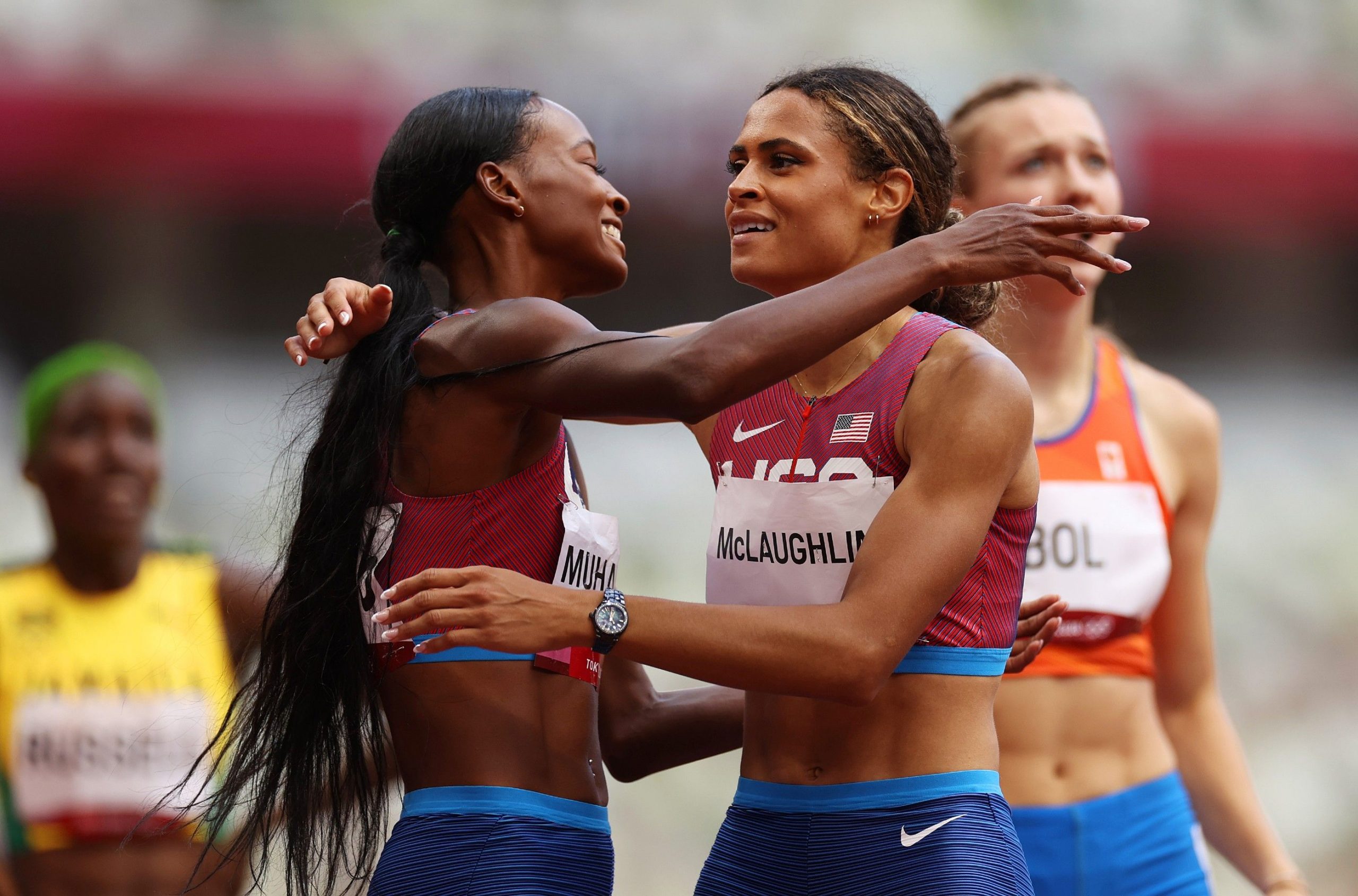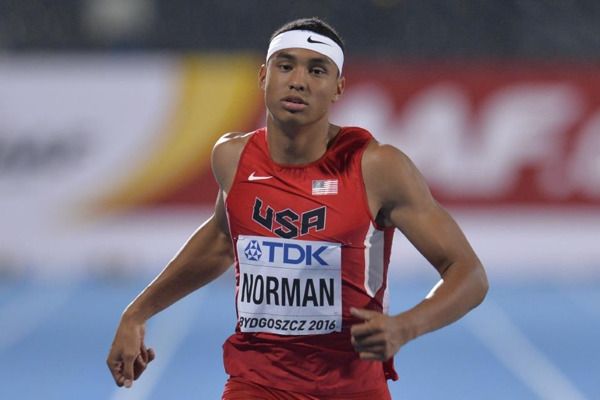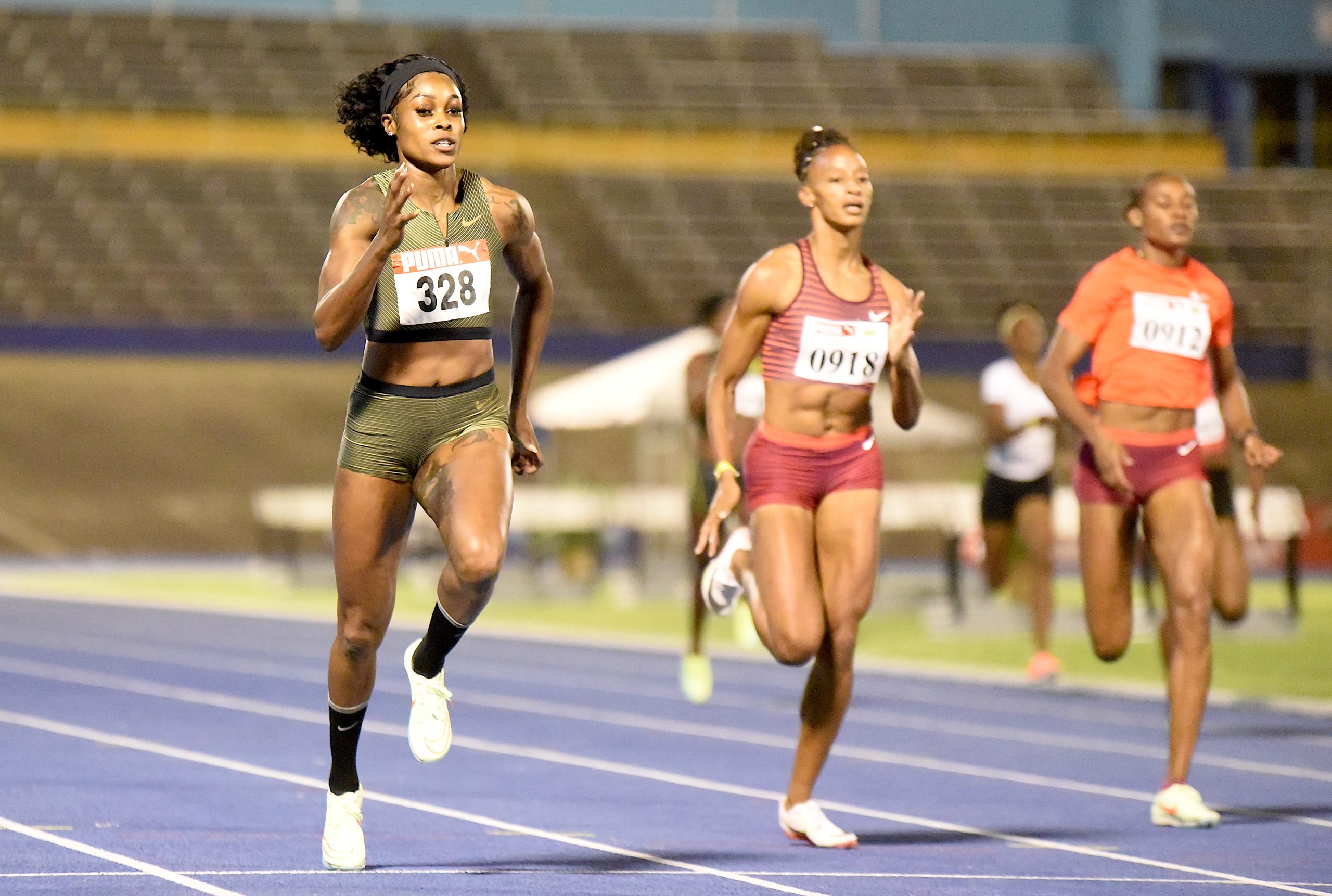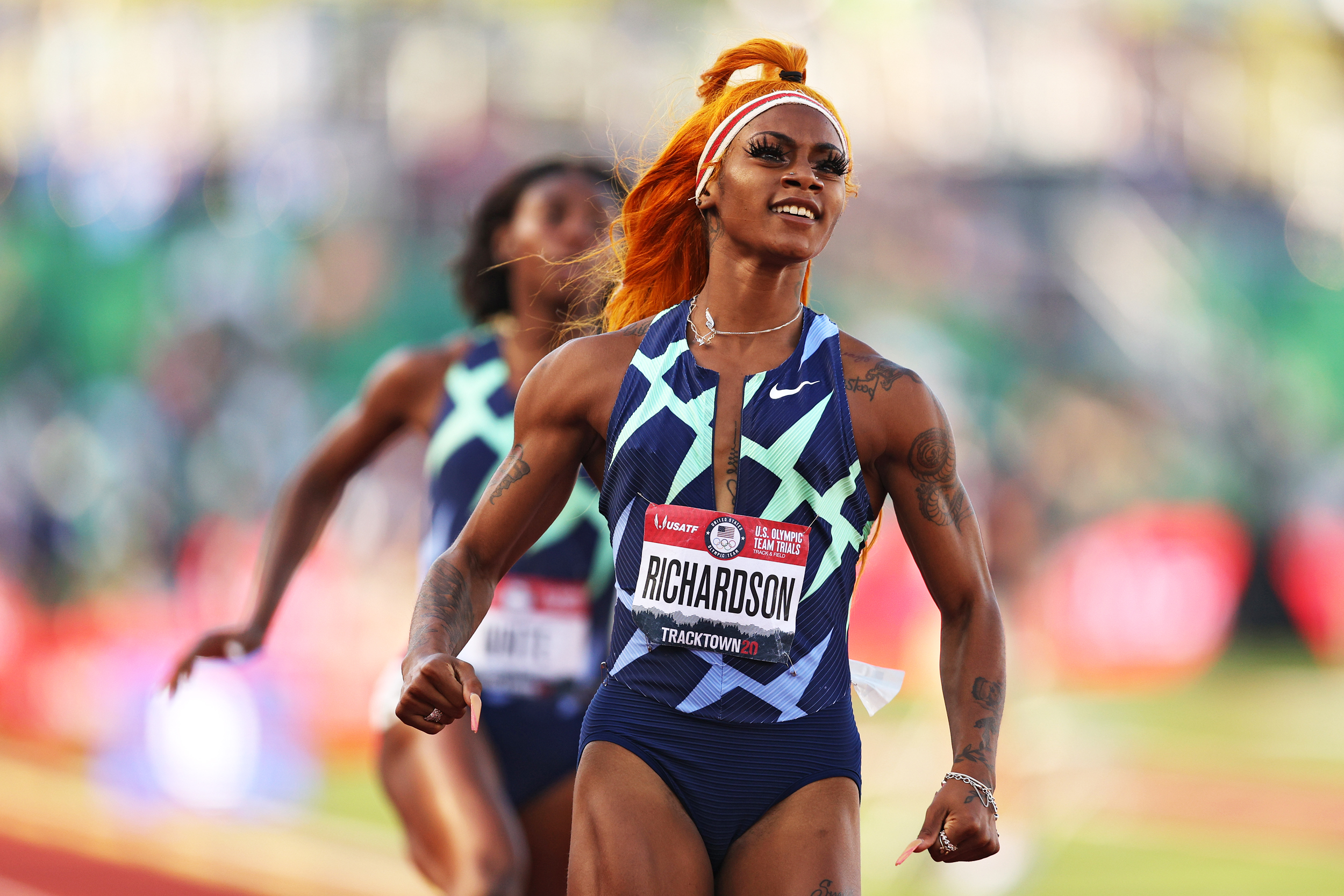Since undergoing an emergency C-section to give birth to her daughter Camryn in November 2018, American sprint legend Allyson Felix, 38, has become acutely aware of the challenges faced by black women in childbirth and the broader maternity issues confronting female athletes.
“I was scared that my daughter wouldn’t make it,” said Allyson Felix. The recently retired American sprint star appeared on NBC’s Meet the Press this week to raise awareness of these disparities. ALSO READ: Decades of Dominance: Reflecting on The Bowerman’s Past Winners Before 2023 Ceremony
During a routine checkup with her obstetrician 32 weeks into her pregnancy, Felix was diagnosed with Preeclampsia, a condition characterized by elevated blood pressure and high protein levels in urine. Symptoms can include vision changes, chest pains, headaches, and shortness of breath, among other complications. If not promptly treated, it can lead to kidney or liver failure, stroke, heart disease, and the death of both the expectant mother and her fetus or newborn.
Allyson Felix Sheds Light on Maternal Health Challenges Faced by Black Women
This condition is notably more prevalent in women of color. According to the Agency for Healthcare and Research Quality, Black women are 60 percent more likely than White women to suffer from Preeclampsia. Reports from UMass Chan Medical School indicate that the risk of dying from preeclampsia or eclampsia is about five times greater for Black women compared to White women.
“I think I kind of had an understanding of statistics and what maternal health was like in America, but I didn’t really understand,” said Felix.
“I’m a professional athlete; I’ve taken care of my body my entire life,” Felix stated. The 11-time gold medalist, who attended prenatal appointments, birthing, and labor classes and maintained her training regimen while pregnant, intended to have a natural birth.
“I felt like I had great medical care, but that’s not always enough,” she said.
“Because I had severe features of preeclampsia, they were constantly worried about me having a stroke or losing my vision.”
Ultimately, to protect both Felix and her unborn daughter, doctors admitted her to the hospital for further evaluation and then proceeded with an emergency delivery two months earlier than expected.
“It was a very quick progression, but I know if I did not deliver, myself or my baby, or both of us wouldn’t have made it.”
Camryn was born weighing 3 pounds, 7 ounces and spent the first month of her life in the neonatal intensive care unit.
Felix regrets not being better informed about the sneaky, progressive nature of her condition. “I feel like I should have been told what to look for, that the swelling in my feet is not simply a sign of pregnancy but could be preeclampsia,” she said.
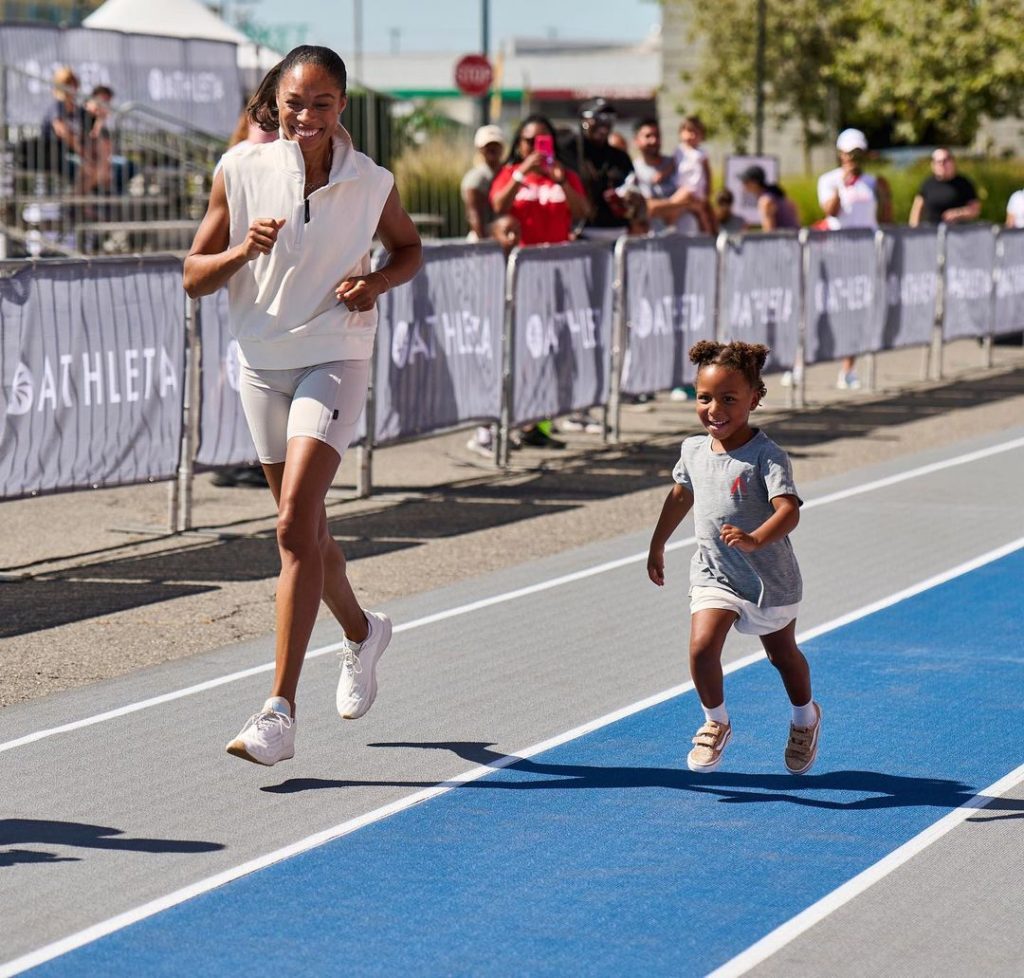
“As a woman of color, I’m already at a greater risk for these complications,” she added. “What are the signs? What can I do to help prevent this? Also, I should be monitoring my blood pressure. Being educated and aware is huge,” said Allyson Felix.
Felix remains a staunch advocate for equality in Black maternal healthcare. This issue resurfaced in May 2023 when 2017 women’s 100m champion Tori Bowie, 32, died from complications related to childbirth.
Bowie, a 2016 Rio Olympics teammate of Allyson Felix’s in the 4x100m relay, was about eight months pregnant and in labor at the time of her death. Another African American Olympic teammate, Tiana Madison, who also competed in the 4x100m relay in London and Rio, shared her own near-death experience during labor at 26 weeks. ALSO READ: Noah Lyles Tops Track Category in Revised World Athlete of the Year Format
“It’s absolutely devastating that three of the fittest, healthiest women in the world are facing these complications, and it’s a stark reminder that this condition doesn’t discriminate.”
“It really hurts my heart that my friend Tori (Bowie) passed away, and it brought this back to the forefront, but this has been happening,” Felix said.
Allyson Felix emphasizes the need for implicit bias training. “There are countless stories of women not being heard in the delivery room and at doctors’ appointments. I don’t think you should have to be prepared to advocate for yourself,” she said.
“Policy changes are necessary at that level,” she continued, echoing her sentiments from her May 2019 testimony before the Ways and Means Committee in Congress.
Allyson Felix’s Fight for Maternal Health Equity Gains Momentum
Aside from advocating for medical treatment equality, Felix’s experience naturally led her to speak out against broader gender inequities in sports and business.
During her pregnancy, she hesitated to disclose her situation to her main sponsor, Nike, which was planning to offer her a 70 percent reduction in her previous deal due to her age.
“In track and field, the culture around pregnancy was silence. Athletes would either hide pregnancies to secure new contracts or their contracts were put on hold—almost like they had an injury,” Felix said in an interview with Fortune.
She also referenced fellow competitors and former Nike track athletes Sara Goucher and Alysia Montaño, who faced similar experiences.
“I would work out at 4 AM when it was still dark out, I wore baggy clothes, I rarely left the house,” Allyson Felix said.
Although understanding the financial implications of aging, Felix couldn’t accept the principle of being penalized for being pregnant and giving birth.
“They were willing to give me that time separately, but they weren’t willing to tie it to maternity, and that was the no-go for me,” said Felix.
Despite her reservations about publicly criticizing her main source of income, her resolve prevailed.
“I got to a point where I just had to be okay if everything went away; it was that important. It was bigger than sport. I didn’t want the next generation to have it as hard and difficult as I did.”
This led to her departure from Nike in 2019, followed by a highly publicized New York Times Op-Ed piece titled “Allyson Felix: My Own Nike Pregnancy Story.”
“It’s about culture; you do not have to choose between motherhood and the career you love.”
Following her public stand, Nike amended its policy to allow an 18-month window for athletes on maternity leave, sparing them performance-based pay reductions starting eight months before the anticipated due date.
“I think we are seeing people speak out more, and there is power in that collective,” Allyson Felix noted.
After parting ways with Nike, Felix aligned with Athleta, a women’s athletic apparel company, finding a more compatible sponsorship partnership.
“They were breaking the mold of what sponsorship looked like and celebrating me in a holistic way, not just as an athlete, but as a mother and supporting the advocacy work I want to do as well,” she said.
“And we are stepping closer, but we have a long way to go in terms of visibility, equal pay, coverage; so I hope we continue to progress.”
In addition to her partnership with Athleta, Felix launched her own shoe line, Saysh, in 2021, prioritizing female fit and comfort. She debuted the shoes at the 2021 US Olympic Trials.
Allyson Felix, who announced in November she is expecting again with her husband Kenneth Ferguson, is due to have her son in April.



